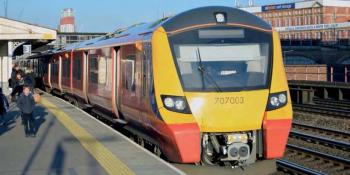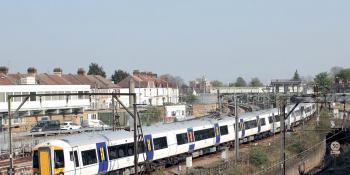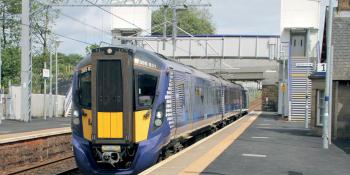Bin the computer graphics – now it gets serious


On 20 January 2017, Transport Secretary Chris Grayling announced the publication of the Periodic Indicative Notice (OJEU PIN), starting procurement of the fleet of ‘Classic Compatible’ Very High Speed Trains (VHST) for High Speed 2. So for the second time in this column I have had to wade through lagoons of hyperbolic statements of the blindingly obvious in search of relevant information (Stop whingeing, you get paid to do it –Ed).
Take Chris Rayner, HS2 Ltd Managing Director – Railway Operations. ‘We are looking for a supplier who is capable of delivering and maintaining some of the world’s most advanced rolling stock, with designs putting the passenger at their heart to ensure seamless, accessible, fast and reliable journeys’.
Well, you wouldn’t be looking for technically backward unreliable trains that ignored passenger comforts, would you? On the other hand, given the DfT-specified seats in the Inter-city Express Programme trains and Class 700, HS2 could herald a radical policy change.
Anyway, HS2 expects to award the contract for up to 60 classic compatible VHSTs at the end of 2019. The contract also includes maintenance of the fleet for an initial term of 12 years at the dedicated rolling stock depot planned for Washwood Heath in Birmingham. No mention is made of a London depot. The quoted value of £2.75 billion covers the cost of the trains plus maintenance.
TABLE 3: SUPPLY INDUSTRY COMPANIES AT WCP BIDDERS’ DAY
■ Alstom
■ Bigorre Ingenierie
■ Bombardier
■ CAF (UK)
■ Hitachi Rail Europe
■ IBM
■ Knorr-Bremse
■ McLaren AppliedTechnologies
■ NomadDigital
■ PanasonicAvionics
■ Parkeon Transit Ltd
■ PriestmanGoode
■ Siemens
■ Silverrailtech
■ Stadlerrail
■ Talgo
■ VosslohKiepe
■ Wabtec Group
CAPABILITIES
DfT will be holding an industry event on 27 March where further information will be provided on bidding requirements and process. This will be followed by the launch of the Pre-Qualification pack that will provide further details of the specifications for the trains.
Following shortlisting, the formal invitations to tender will be issued in 2018. The contract award will be announced at the end of 2019.
According to HS2, selection of the supplier is expected to consider ‘their track record of delivering technical and operational flexibility (including integration of railway systems), meeting contractual commitments, and the whole-life cost of the proposal over the entire design life’.
While the DfT press release talked about the trains running at ‘around 225mph (360km/h)’, the PIN does not indulge this political Ozymandianism. Instead, it says that trains will need to operate on the existing UK infrastructure and on the UK’s new HS2 network ‘at speeds that deliver specified journey times’. There’s a spreadsheet on these speeds ready for a future column.
UK CONTENT
Those of you who read last month’s piece on my visit to William Cook can guess what’s coming next. What is in it for the specialist UK suppliers?
Having quoted Whitehall sources last month on the need to maximise UK manufacturing content, it was encouraging to read this in the PIN: potential bidders ‘are also expected to be required to make clear how their proposal will add value to the UK economy including the creation of employment opportunities, investment in workforce education and the development of long-term technical skills and capability in designing, manufacturing, maintaining and refurbishing High Speed trains’
Predictably, when I asked the Rail Supply Group about the scope for UK manufacturing industry in the supply of the new trains, its Industry Chairman Gordon Wakeford was less committed than the PIN. He told me: ‘The new HS2 trains will not just bring business to the headline bidders, but also to a myriad of smaller UK-based suppliers, creating jobs and opportunities across the entire country. RSG will work closely with HS2 and Government to maximise these benefits to the UK rail industry’.
I had been expecting something along the lines of ‘This is a massive opportunity for rolling stock manufacturers to increase the volume of high-value systems and components manufactured in the UK and we look for the Invitation to Tender to encourage this’. As you can read in the next section, I also got some pretty anodyne replies when I put the same question to the manufacturers.
‘AMAZING, HOLMES!’
‘HS2 Ltd intends to procure the rolling stock on the basis of proven technical capability of designing, manufacturing, maintaining and refurbishing High Speed trains.’ OJEU PIN




